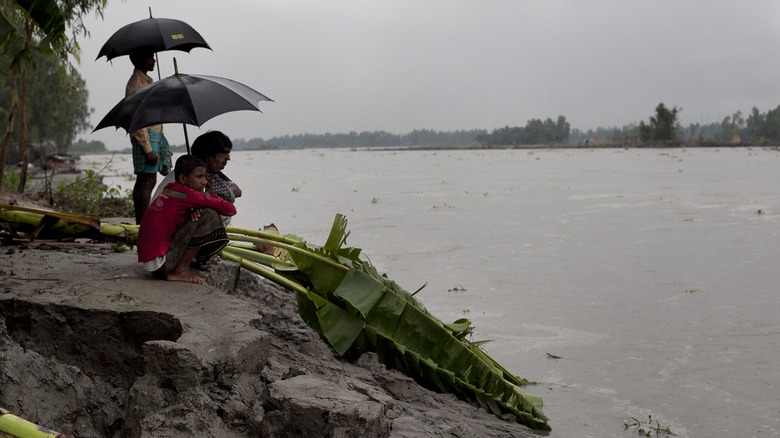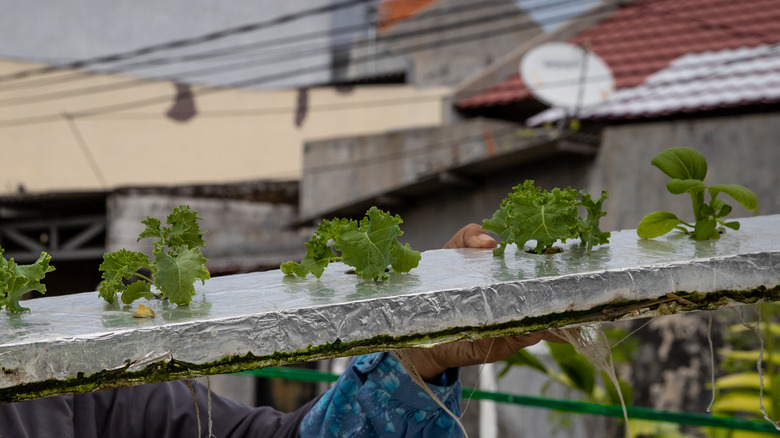The Old-School Farming Technique Saving Bengali Crops From Flooding
Climate change has imperiled agriculture in a number of places around the world. Situated to the west of India, Pakistan is struggling with devastating rains and flooding that have destroyed 80-90% of the country's crops. To India's east, 2022 has brought flash floods to Bangladesh in May as well as record high rainfall from the summer monsoons, as much as 38 inches in a single day, according to Deutsche Welle. Many families have struggled to recover from the floods' devastation, and Nasa's Earth Observatory points out that researchers have determined that as of 2022, roughly 70 million people in Bangladesh now inhabit areas prone to flooding.
As sea levels rise, the struggle to raise crops is likely to become even more challenging for Bengali farmers. As Reuters explains, much of the farmland lies in river deltas, low-lying areas already accustomed to seasonal flooding in southwestern Bangladesh. The flooding, though, has gotten much worse in recent years, and the season, which used to last for five months, now sees the land used to plant crops underwater for 8-10 months of the year. Some Bengali farmers have found a solution for the future in the past.
Bengali farmers rely on a creative solution
Reuters reports that, based on a report from the International Monetary Fund, by 2050, Bangladesh is predicted to lose 17% of its land surface and 30% of its food production. Farmers like Mohammad Mostafa have resorted to farming as their forefathers used to during the rainy season: On floating rafts woven from water hyacinths. These floating farms, used by roughly 6,000 farmers in southwestern Bangladesh, are tended by boats that float between the rows of crops.
Mostafa remembers when the land now underwater used to be the dry ground where he played football. But his floating crops, grown on laboriously hand-woven rafts, have allowed him to feed his family of six. The BBC explains that crops like squash, bitter gourd, red amaranth, spinach, turmeric, ginger, and okra can be grown on these floating gardens. In fact, Fahmida Akter, a senior research fellow at BRAC University in Dhaka told the BBC that floating farms are not only environmentally-friendly, making use of the invasive water hyacinth plant as the foundation for crops, but also explained, "For a country like Bangladesh where periods of waterlogging are increasing and becoming longer each year, floating farming is the future."

